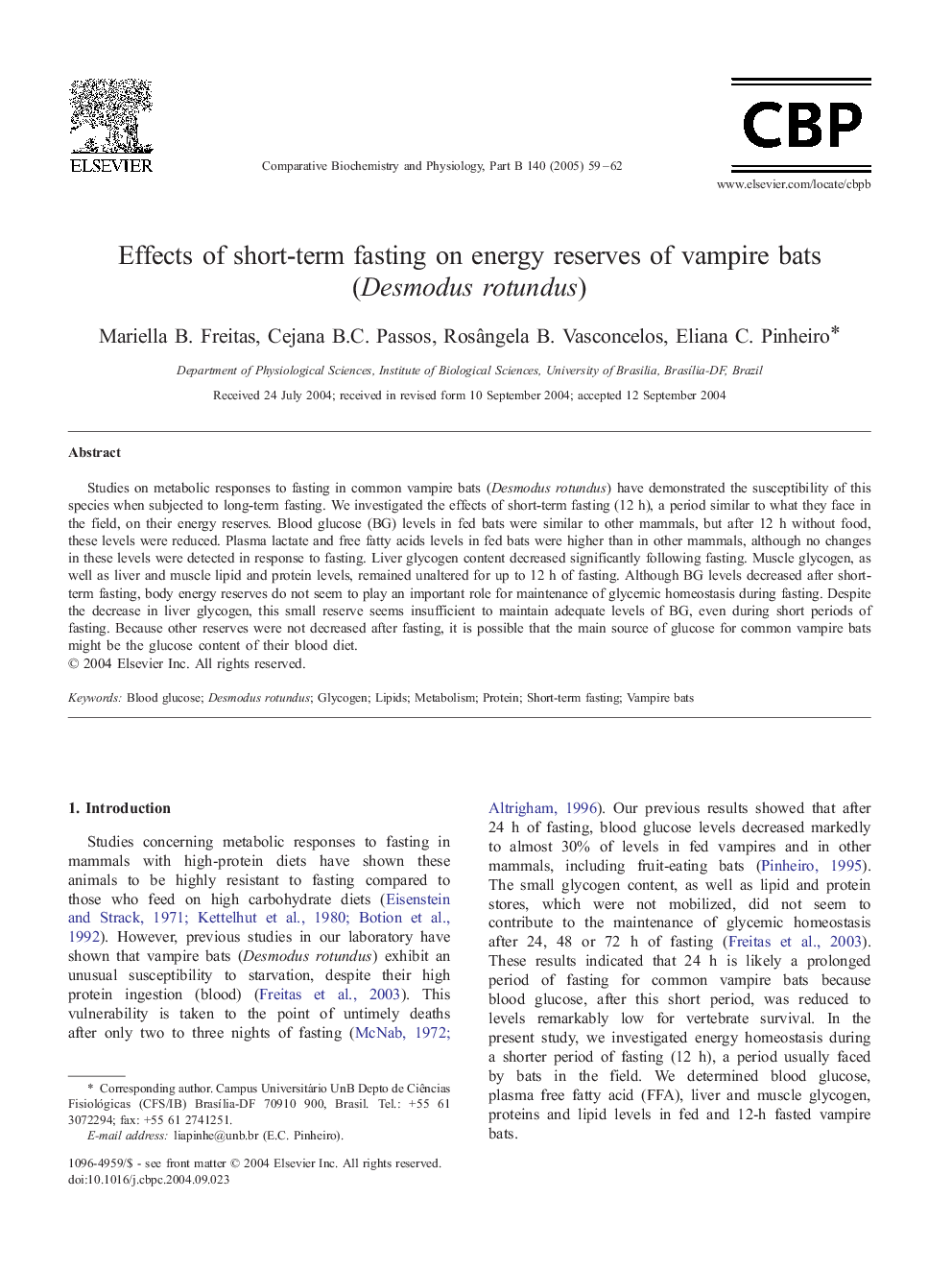| Article ID | Journal | Published Year | Pages | File Type |
|---|---|---|---|---|
| 10820809 | Comparative Biochemistry and Physiology Part B: Biochemistry and Molecular Biology | 2005 | 4 Pages |
Abstract
Studies on metabolic responses to fasting in common vampire bats (Desmodus rotundus) have demonstrated the susceptibility of this species when subjected to long-term fasting. We investigated the effects of short-term fasting (12 h), a period similar to what they face in the field, on their energy reserves. Blood glucose (BG) levels in fed bats were similar to other mammals, but after 12 h without food, these levels were reduced. Plasma lactate and free fatty acids levels in fed bats were higher than in other mammals, although no changes in these levels were detected in response to fasting. Liver glycogen content decreased significantly following fasting. Muscle glycogen, as well as liver and muscle lipid and protein levels, remained unaltered for up to 12 h of fasting. Although BG levels decreased after short-term fasting, body energy reserves do not seem to play an important role for maintenance of glycemic homeostasis during fasting. Despite the decrease in liver glycogen, this small reserve seems insufficient to maintain adequate levels of BG, even during short periods of fasting. Because other reserves were not decreased after fasting, it is possible that the main source of glucose for common vampire bats might be the glucose content of their blood diet.
Keywords
Related Topics
Life Sciences
Biochemistry, Genetics and Molecular Biology
Biochemistry
Authors
Mariella B. Freitas, Cejana B.C. Passos, Rosângela B. Vasconcelos, Eliana C. Pinheiro,
